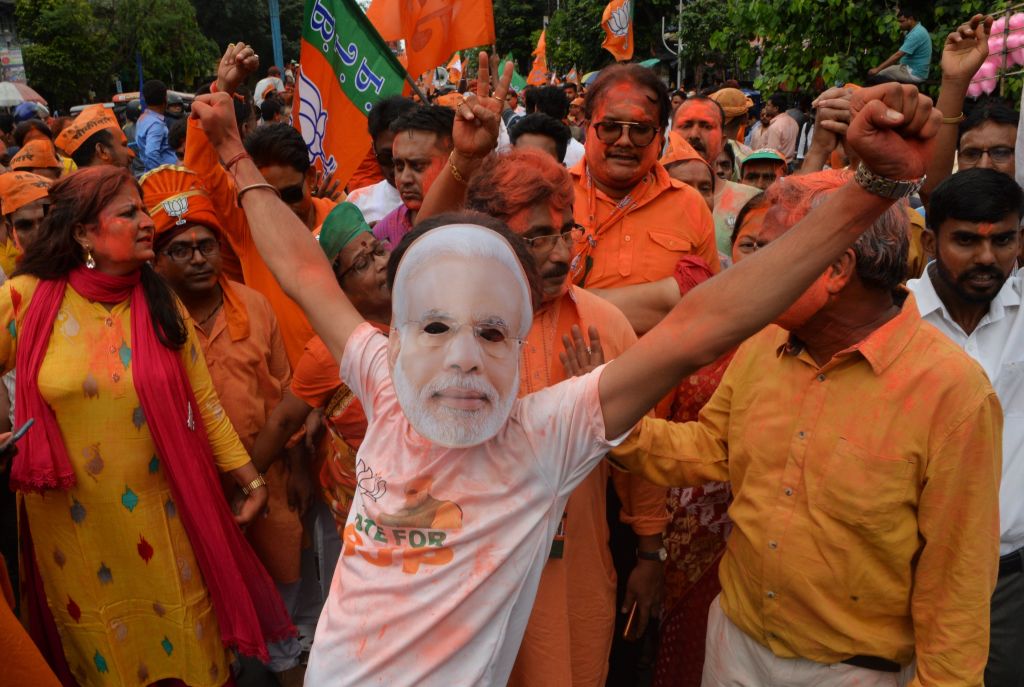- Tuesday, May 07, 2024
Avani Dias, who was based in Delhi for the Australian Broadcasting Corporation (ABC), expressed frustration with the local government’s actions, citing alleged impediments to her professional work such as restricted access to events.

By: Shubham Ghosh
AVANI DIAS, the South Asia correspondent for Australia’s national broadcaster has been compelled to exit India following clashes with the country’s Narendra Modi government over her reporting, highlighting the mounting challenges faced by journalists in the south Asian nation in the times of the leader with Hindu nationalist leanings.
According to a report by The Guardian, Dias, who was based in Delhi for the Australian Broadcasting Corporation (ABC) since January 2022, expressed frustration with the local government’s actions, citing alleged impediments to her professional work such as restricted access to events, takedown notices issued to YouTube for her news stories, and the denial of a standard visa renewal.
In the concluding episode of her podcast, “Looking for Modi,” Dias disclosed that the Indian government informed her of the blocking of her visa renewal, effectively forcing the Sri Lankan-Australian journalist to leave the country.
Last week, I had to leave India abruptly. The Modi Government told me my visa extension would be denied, saying my reporting "crossed a line". After Australian Government intervention, I got a mere two-month extension …less than 24 hours before my flight. 1/2
— Avani Dias (@AvaniDias) April 22, 2024
We were also told my election accreditation would not come through because of an Indian Ministry directive. We left on day one of voting in the national election in what Modi calls "the mother of democracy”.
Hear more on our podcast Looking for Modi: https://t.co/rn6wTkdI21
— Avani Dias (@AvaniDias) April 22, 2024
The Indian government’s decision came in the wake of a takedown notice issued to YouTube regarding an episode of “Foreign Correspondent,” the flagship international news programme of the ABC, which Dias reported on.
The episode delved into the killing of Hardeep Singh Nijjar, a Sikh separatist, in Canada last year. Ottawa leveled accusations against the Modi government in September last year, alleging its involvement in Nijjar’s elimination, which resulted in serious strains in their ties.
According to Dias, the Indian ministry of foreign affairs refused to extend her visa saying her reportage had ‘crossed a line’.
“He (the official) specifically said it was because of my Sikh separatist story, saying it had gone too far,” she said, according to The Guardian report.
Canberra had lobbied India on behalf of the journalist at this point and less than a day before she and her partner was due to depart the south Asian nation, the Modi government changed its decision to renew Dias’s visa for two months. But Dias understood by then that it would be too challenging for her to stay back and continue her work independently. She flew back to Australia on the weekend.
“It felt too difficult to do my job in India. I was struggling to get into public events run by Modi’s party, the government wouldn’t even give me the passes I need to cover the election and the ministry left it all so late, that we were already packed up and ready to go,” she said in her podcast.
“It’s all by design. The Narendra Modi government has made me feel so uncomfortable that we decided to leave. There’s always a feeling of unease that this sort of backlash could come your way as a journalist in India, I’ve felt it the whole time I’ve been here, so have my colleagues from other publications.”
A group of foreign journalists in India expressed their solidarity for Dias and wrote an open letter slamming the “treatment” that was meted out to her by the Indian authorities.
“Though she (Dias) was granted a two-month visa extension the day before her departure, it was made clear to her that she would not receive accreditation to cover the election,” the letter, signed by 30 foreign journalists in India, stated.
On April 16, three days before she left India, Dias said the ABC were informed by the Press Information Bureau that there was “no chance” her election accreditation would be approved for the Indian polls due to an order from the external affairs ministry, the Quint reported.
Open letter: foreign correspondents protest the case of ABC’s Avani Dias, who was effectively forced out of #India this week after being told her reporting “crossed a line”. #PressFreedom pic.twitter.com/dvx1lr5aIq
— John Reed जॉन रीड (@JohnReedwrites) April 23, 2024
India is currently in the middle of its national elections that will continue for more than 40 days.
“The ABC fully backs and stands by the important and impactful reporting by Avani Dias during her time as ABC correspondent in India. Avani joins the Four Corners team as a reporter in coming weeks. The ABC believes strongly in the role of independent journalism across the globe, and freedom of the press outside Australia,” David Anderson, managing director of the ABC, was quoted as saying by The Guardian.
Foreign correspondents in India have reportedly faced increasing pressure from the authorities due to their reporting since Modi came to power in 2014. Those journalists who have published stories critical of the government have been given visas of short duration and they have also been reprimanded by government officials over their coverage. Many journalists have also been denied access to large parts of the country, including the restive Jammu and Kashmir.
![]()